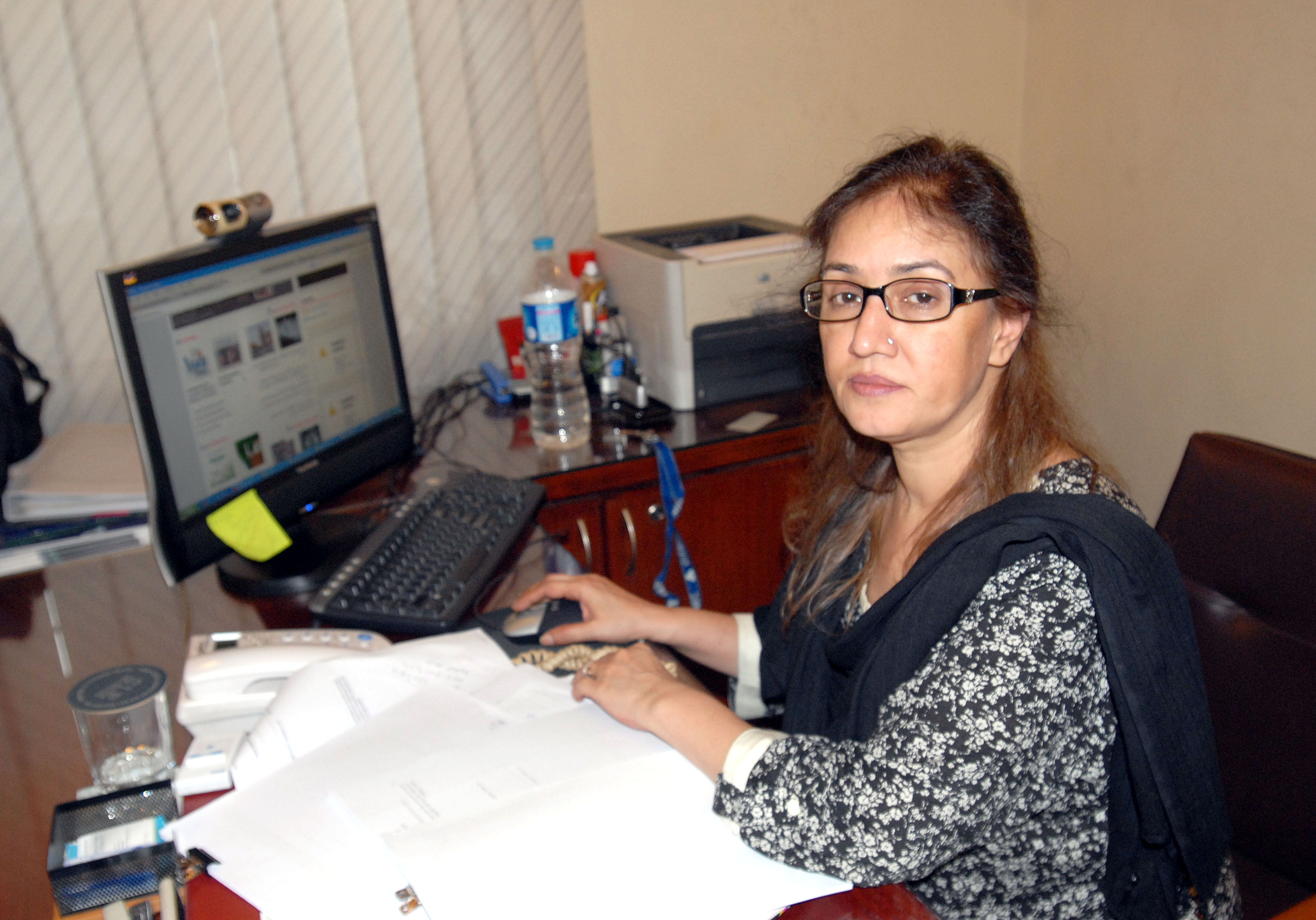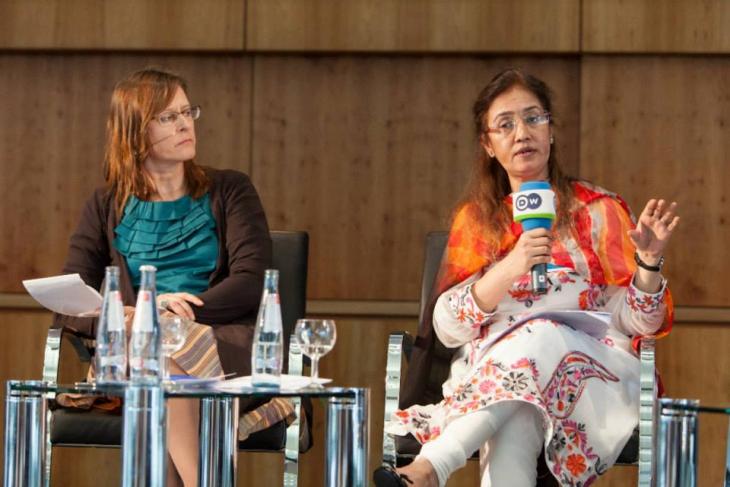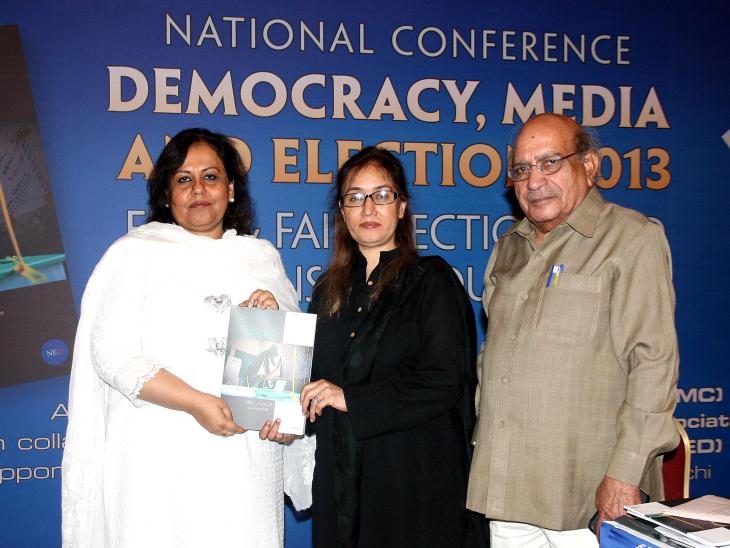How Pakistan's Media Is Defending Democracy

On 11 May 2013, the first free democratic elections were held in Pakistan since the country gained independence in 1947. Despite terror threats from the Taliban, the Election Commission said that 60 per cent of voters took part, compared with 43.7 per cent in 2008. This is one of the best results in the history of Pakistan. How would you assess the role played by the media during the election in Pakistan? And to what extent did the Pakistani media influence the electoral process and its results?
Fauzia Shaheen: We saw that the media played a major role throughout the whole electoral process. For example, when voters were filling in their forms, the Election Commission asked them horrendous questions about their qualifications and religious beliefs. The media exposed vote-rigging in a number of polling stations in different constituencies on several TV channels, websites and newspapers. Thanks to the power of the media, the Election Commission had to repoll in these constituencies; nobody could deny what had happened in those videos. This is how the media regulated and controlled the elections.
On polling day, at least 29 people died during attacks and more than 90 were injured. More than 620,000 policemen, members of the paramilitary and soldiers were mobilised to ensure security on the day. Do you think that the media can be considered a power that is capable of reducing violence, controlling political processes and spreading and ensuring democracy in Pakistan?
Shaheen: Of course. One could say that to a certain extent, the media has become the guarantor of democracy. After all, as you know, this is the first time in the history of Pakistan that democratic elections were held and people cast votes. The politicians and the corruption are to blame: during the whole last year of the election process, many people thought that the military or some politician or non-state actor would destroy the process, but the media made sure it went ahead.

In the wake of the elections, the media exerted pressure on different parts of society and emphasised that the elections had to be held in the country because it is a democratic requirement. The media also exposed many politicians who did things they should not have done. So these are the elements of a democracy and evidence of a strengthening of democracy in a country.
What role does civil society play in Pakistan and what is its relationship with the media?
Shaheen: Over the last five to eight years, civil society in Pakistan has become very vibrant and strong. It has a role to play in the strengthening of democracy and the protection of human rights. It is also becoming very vocal: activists are taking to the streets and using blogs and social media to protest about different issues, for example against the Blasphemy law, or expressing their solidarity with Mumtaz Qadri.
Qadri was imprisoned in 2011 because he killed Punjab Governor Salman Taseer for having expressed his opposition to the country's blasphemy law. Before that, he was the governor's bodyguard and was responsible for his security. Taseer's murder shocked liberal Pakistanis, but Qadri was supported by radical Islamic parties. For them, the murderer was a national hero. His supporters used social networks to fight for his cause and claim his freedom.
In rural areas, however, social activists are not as strong as they are in urban centres. Over 50–60 per cent of Pakistan's population lives in rural areas. There is widespread poverty and a lack of education in rural areas; the economic situation there is poor and there is an electricity crisis. Most of the urban centres, on the other hand, are strong and the people there are well-educated; they protest.
What role do women play in the media?
Shaheen: Three per cent of the people working in the media in Pakistan today are women. When I started my career as a journalist, there were very few female editors in Pakistan. Newspapers and channels gave them stereotypical "female" stories to cover, like showbiz, entertainment and kitchen stories. So my main motive in setting up the Women Media Centre was to empower women through training to play their rightful role in media and society. I think that women are more intelligent than male reporters; they are more sensible and they are very hard working. My female trainees work in different departments, for example they are doing political, war zone and conflict reporting, and they are covering the elections.

How does the rest of society react to your initiative? And what about men?
Shaheen: Well, we still face a lot of problems because we are still a male-dominated society in all areas. In rural areas, women work on farms all day, but they are not paid for their work. In urban centres, women have jobs, but they still face problems.
Society has been changing very slowly, and the media is playing a very important role because it exposes different cases of human rights violations. Nevertheless, women still face many challenges because this is an Islamic country. We are still compelled to go backwards; we cannot go forward; we cannot live independently; we cannot fulfil our wishes and we have to follow our family and society customs.
Is the press in Pakistan free?
Shaheen: Yes, there is freedom of the press. However, as we discussed this morning, there is also self-censorship. In Karachi, for example, we cannot write anything about the political party MQM, which is known for its involvement in various violent and criminal activities in the city of Karachi. Nor can we write anything negative about the Taliban or Islamic extremism. Generally, however, with the exception of a few special cases, the state does not interfere in blogging.
What is your wish for the future of the media in Pakistan?
Shaheen: I want to see woman working in the media on an equal basis. Actually, more and more women are entering the media. At university, 90 per cent of those studying journalism are women, but it is the opposite in the media, where 90 per cent are men and only 10 per cent are women.
However, media channels are realising that women are more sensible and hard working and they are starting to recruit them. When I started out as a journalist, editors, newspapers or newsrooms did not recruit women. But now, one newsroom has hired more than ten women, so the number of women has been increasing in recent years.
Interview conducted by Julie Schwannecke
© Qantara.de 2013
Editor: Aingeal Flanagan/Qantara.de
Fauzia Shaheen is President of the Women Media Centre and Chief Editor of Dastak News Magazine in Karachi, Pakistan. The Woman Media Centre (WMC) is a non-profit organisation. Its core function is to carry out research and to train and educate media women. Furthermore, it aims to provide a professional environment for women journalists and to raise awareness of democratic and civic issues from their perspective.
